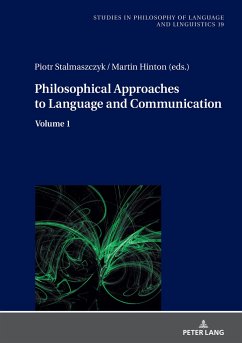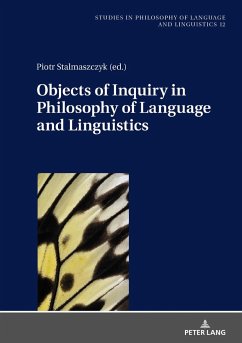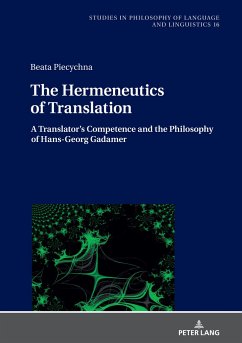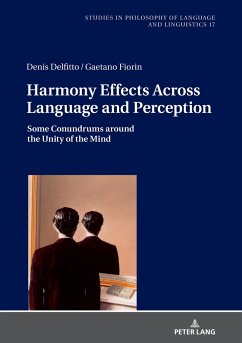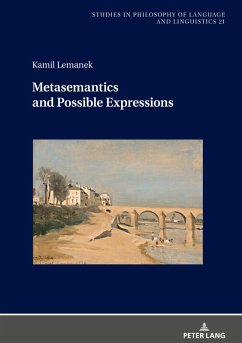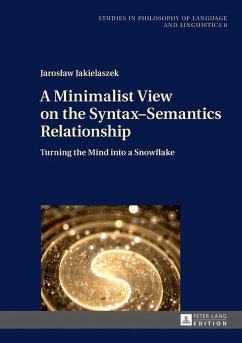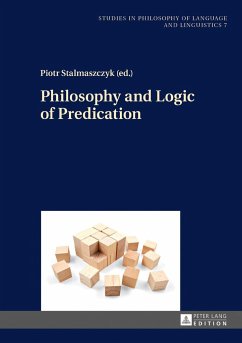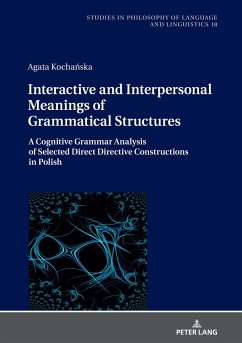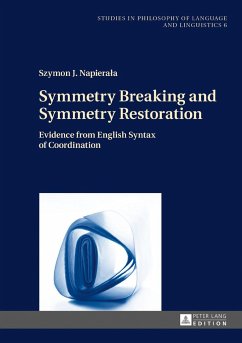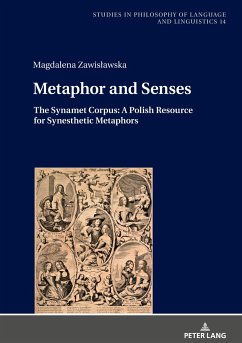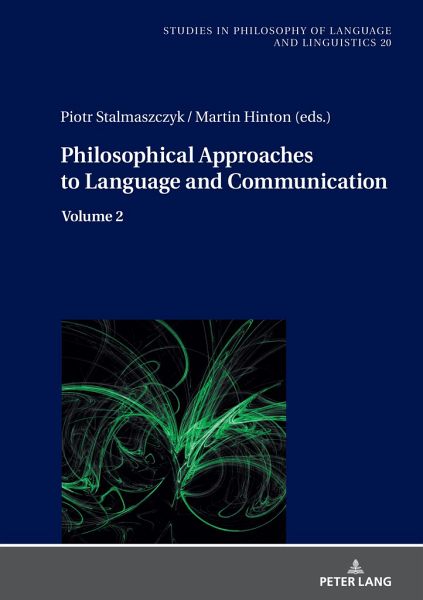
Philosophical Approaches to Language and Communication
Volume 2
Herausgegeben: Stalmaszczyk, Piotr; Hinton, Martin
Versandkostenfrei!
Versandfertig in 6-10 Tagen
64,85 €
inkl. MwSt.

PAYBACK Punkte
0 °P sammeln!
This two-volume collection showcases a wide range of modern approaches to the philosophical study of language. Contributions illustrate how these strands of research are interconnected and show the importance of such a broad outlook. The aim is to throw light upon some of the key questions in language and communication and also to inspire, inform, and integrate a community of researchers in philosophical linguistics.Volume two presents analyses of several fundamental concepts and studies in which they are applied empirically. These include the linguistic topics of assertion, vagueness, and dis...
This two-volume collection showcases a wide range of modern approaches to the philosophical study of language. Contributions illustrate how these strands of research are interconnected and show the importance of such a broad outlook. The aim is to throw light upon some of the key questions in language and communication and also to inspire, inform, and integrate a community of researchers in philosophical linguistics.
Volume two presents analyses of several fundamental concepts and studies in which they are applied empirically. These include the linguistic topics of assertion, vagueness, and disagreement, and the philosophical themes of belief, normativity, and thought. These chapters provide unique insight into the role of philosophy in the contemporary study of communication.
Volume two presents analyses of several fundamental concepts and studies in which they are applied empirically. These include the linguistic topics of assertion, vagueness, and disagreement, and the philosophical themes of belief, normativity, and thought. These chapters provide unique insight into the role of philosophy in the contemporary study of communication.





